Probiotics DefinitionProbiotics are live microorganisms that confer health benefits on the host when consumed in proper quantity. Probiotics are commonly found in fermented foods and dietary supplements and are gaining attention as potential therapies for a wide range of health benefits. In this article, we will discuss what probiotics are, how they work, their potential health benefits, and possible side effects. 
What are Probiotics?Probiotics are live or microorganisms that provide specific health benefits to the host when consumed in adequate quantities. These microorganisms are bacteria, but they can also be eased or other types of microorganisms. The most commonly used probiotics bacteria belong to Lactobacillus and by Fido bacterium genera. Probiotics can be found in various fermented foods like yogurt kefir, kimchi, and kombucha, as well as in other dietary supplements. How Do Probiotics Work?Researchers are still trying to discover the exact mechanism by which probiotics confer health benefits, as they still need to be fully understood. However, several mechanisms have been known for their profound benefits. One possible mechanism is the modulation of the gut microbiota. Probiotics can help restore the balance of beneficial and harmful bacteria that are present in the gut. It may have a positive impact on the overall health of the human being. Another proposed mechanism is the modulation of the immune system. Probiotics have this quality: they can stimulate the production of immune cells and cytokines, the essential components of the immune system. Probiotics can enhance the immune function and help prevent infections. Probiotics may also produce metabolites that have specific benefits that can be seen in the host. Here is an example that will help you understand this concept in a better way, some probiotic bacteria can produce short-chain fatty acids, also known as SFA, which have been shown to have anti-inflammatory properties and promote human gut health. Health Benefits of ProbioticsProbiotics have been studied for their potential health benefits in various conditions, including digestive disorders, immune function, and mental health. It also has a massive impact on the skin help. 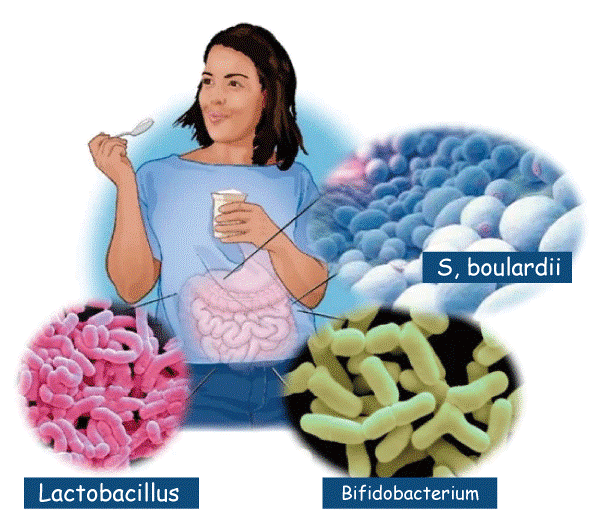
1. Digestive DisorderProbiotics have been shown to be effective in the prevention and treatment of several digestive disorders, and these include of:
2. Immune FunctionProbiotics have been shown to modulate the immune system and enhance the immune function. This can help prevent infection that can improve the immune function in people that have immune-related disorders. 3. Respiratory InfectionsProbiotics have shown significant results as they can reduce the risk and severity of respiratory infections like common cough and cold. 4. AllergiesProbiotics may help prevent and treat allergies as they modulate the immune system of the human body. 5. Autoimmune DiseasesProbiotics positively affect autoimmune diseases like arthritis and multiple sclerosis as they modulate the immune system. 6. Mental HealthProbiotics have been shown to affect mental health as they modulate the gut-brain axis positively. First, let us know what gut-brain access is. The gut-brain axis is the bidirectional communication that takes place between the gut and the brain. Probiotics can influence this communication by modulating the gut microbiota and producing metabolites that can affect the brain. 7. Depression and AnxietyProbiotics have a positive effect on the symptoms of depression and anxiety as they modulate the gut-brain axis. 8. AutismProbiotics have a positive effect on the symptoms of autism as they modulate the gut-brain axis. 9. Skin Health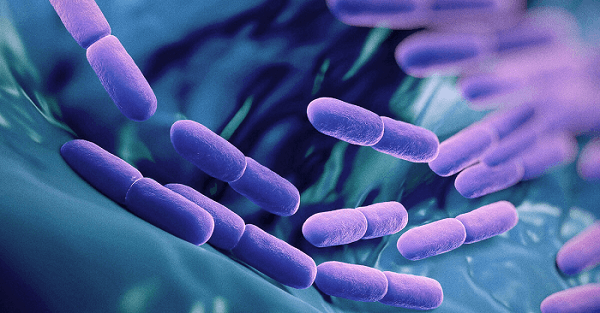
Probiotics have positively affected skin health by modulating gut-skin access. Gut skin access is basically the bio-directional communication that takes place between the gut and the skin. Probiotics can indeed influence this communication by modulating the gut microbiota and produce metabolites that can affect the skin Acne Probiotics may help reduce the severity of acne as they modulate the gut can access Atopic Dermatitis Probiotics may help improve the symptoms of atopic dermatitis as they modulate gut-skin access. Possible Side Effects of ProbioticsProbiotics are generally considered safe when consumed in adequate quantities, recommended by doctors. However, some people may experience side effects, particularly when they consume high doses or certain strains of probiotics that they might be allergic to. Now let us have a look at the possible side effects of probiotics: 1. Digestive SymptomsProbiotics can cause digestive symptoms like bloating gas and diarrhea in some people, particularly when they consume higher doses of probiotics. 2. InfectionIn rare cases, probiotics can cause infections, particularly in people with weakened immune systems or recently undergone surgery. 3. Allergic ReactionsSome people may be allergic to certain strains of probiotics, which can cause allergic reactions like hives and difficulty breathing. It is always recommended to consult a doctor before consuming any probiotics. Note: it is essential to consult a healthcare provider before starting your probiotic supplement, particularly if you have any pre-going medical condition or are on any medicines. It is essential even for a pregnant woman who is on any medications.Factors To Consider While You Are Choosing a Probiotic SupplementWhen choosing a probiotic supplement, it is vital to consider the following factors next time
Different Natural Probiotics for Different Age GroupsAs we have discussed earlier, probiotics are beneficial microorganisms that can improve the gut's health and the overall well-being of individuals. Different types of probiotics have their effects on the body and can offer different benefits for different sort of age groups. Some natural probiotics are suitable for different age groups. 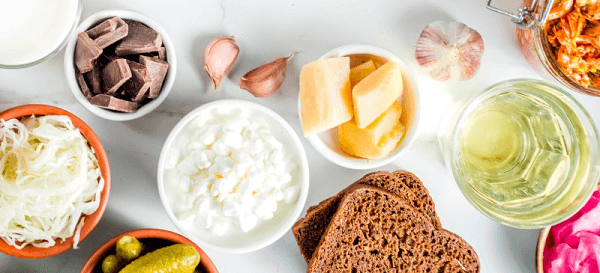
Infants and ChildrenBifido Bacterium: This probiotic strain is naturally found in the gut of breastfed infants and can prevent them from diseases like diarrhea, colic, and other gastrointestinal issues. Lactobacillus Reuteri: This probiotic can help improve digestive health and reduce the college and reflux systems that are commonly found in infants AdolescenceLactobacillus Acidophilus: This probiotic strain can help reduce the intensity and severity of acne commonly found in adolescence-common. This probiotic improves the overall skin health of human beings. Lactobacillus Rahanesus Gg: This probiotic strain can help reduce the incidence and severity of upper respiratory tract infections that are commonly found in adolescence. This probiotic can also help adolescents fight gastrointestinal infections. Adolescents need to go for proper probiotics to attain good future health. Natural probiotics for adolescents are yogurt, kimchi, and Miso. It is essential to know that the effectiveness of natural probiotics can depend on the types of microorganisms present and the amount consumed. Some natural probiotics may also not be suitable for individuals with certain health conditions, so it is always recommended to consult a doctor. For adolescents, it is always recommended to go for natural probiotics for better and natural health. AdultsByfito Bacterium Lattice: this probiotic strain can help improve digestive health, reduce inflammation, and boost immunity in adults. Lactobacillus Plantarum: this probiotic strain helps adults improve their gut health and reduce information commands. It also helps in improving the absorption of nutrients in adults. It is important to note that the effectiveness of probiotics can vary from person to person, and it is always recommended to consult a healthcare professional starting or taking any new probiotic supplement. ElderlyLactobacillus Casei: This probiotic strain can help improve gut health, reduce the risk of infection, and improve the cognitive function that is commonly found in elderly. 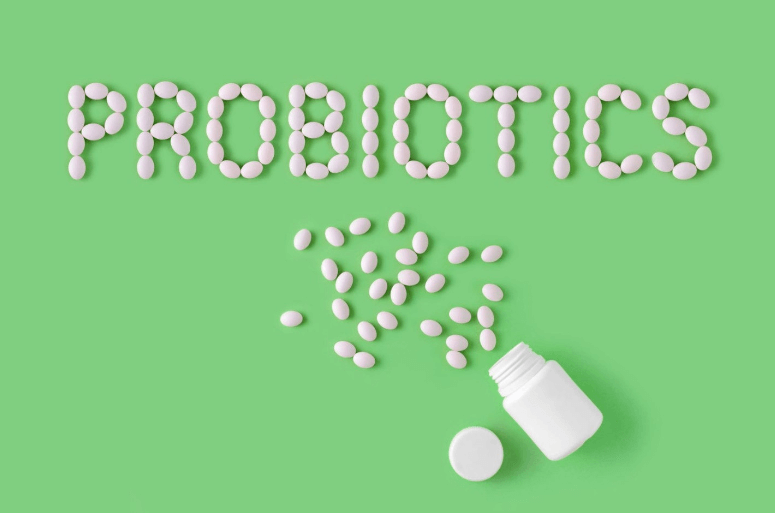
It is important to note that the effectiveness of probiotics can vary from person to person, and it is always recommended to consult a healthcare professional starting or taking any new probiotic supplement. Natural Probiotics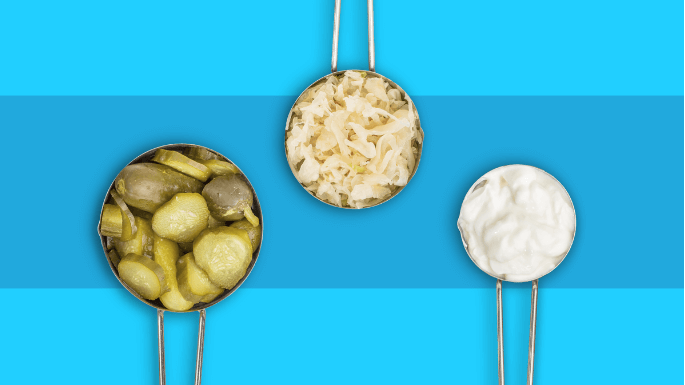
Natural probiotics are live microorganisms that can be found in certain food items and also provide health benefits when consumed in adequate amounts by this we mean to state that the quantity of probiotics that is required to build a healthy body can be built through home remedy food items after consulting the doctor. Here are some of the examples of natural probiotics that if you include them in your regular diet will indeed help you: YogurtYogurt is a fermented dairy product that includes of live and active cultures of lactic acid bacteria like Lactobacillus acidophilus and by Bifidobacterium bifidum. It can indeed help improve digestive health and boost immunity. KefirKefir is basically a fermented milk drink that contains a variety of live microorganisms like Lactobacillus kefir and Bifidobacterium lactis. Kefir can indeed help improve digestive health reduce inflammation, and also has an ability to boost the immunity. KimchiKimchi is basically a Korean fermented vegetable dish that is made up with cabbage and radish.it contains a variety of live like Lactobacillus plantarum and LUCONOSTOC MESENTEROIDES. Kimchi can help improve digestive health, reduce inflammation, and boost immunity. MisoMiso is a Japanese fermented soybean paste that has a variety of life microorganism like Lactobacillus plantarum and Bifidobacterium bifidum. Miso can help improve digestive health and also reduces the risk of certain types of cancer. TempehTempeh is also a fermented soybean product that contains a variety of life microorganisms that can help improve digestive health and also reduces the risk of certain types of cancers. It contains microorganism like Rhizopus Hizopus oligodporus and Bifidobacterium bifidum. SauerkrautIt is the fermented cabbage dish that is popular in Germany and also in other parts of Europe. It contains a variety of live microorganisms like Lactobacillus plantarum and Leuconostoc Meenteroides. This type of probiotic can help improve digestive health, reduce inflammation, and this is also known for boosting immunity. Consuming natural probiotics can indeed help maintain a healthy gut microbiome, which is important for overall health and also health build a healthy body. It is important to know that the effectiveness of natural probiotics can vary depending on the type of microorganisms that are present and are consumed in an adequate amount fill it is also important to note that some natural probiotics may not be suitable for individuals that suffer from certain health conditions or allergies, so it is best to consult a healthcare professional before making any dietary changes. ConclusionTo summarize our discussion on probiotics. Probiotics are beneficial microorganisms that can improve the health of the gut and the overall well-being of an individual. Different types of probiotics have their own effects on the body and can offered different benefits for different sort of age groups. There are some natural probiotics that are suitable for different age groups and should be given after consulting the doctor. 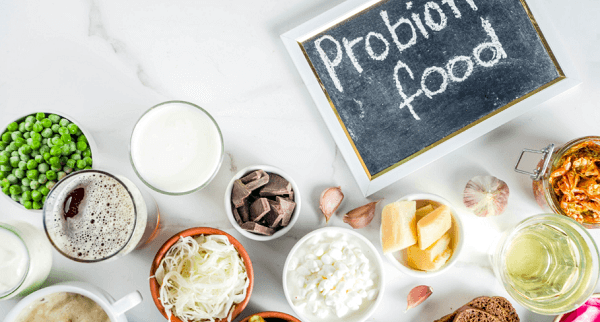
Probiotics are basically live microorganisms that provides certain health benefits to the host when they are consumed in good quantity, they work by modulating the gut microbiota, the immune system, and also the gut brain and gut skin axis. Probiotics have been studied for their potential health benefits and a variety of conditions that basically includes of digestive disorders immune function mental health and have also shown a significant benefit for skin health. It is said that probiotics are considered say when consumed after consulting a doctor and in adequate amount, but some people may experience side effects. Whenever you go for choosing a probiotic supplement commit it is important to consider the strain specifically, potency viability and quality. Either you are an elderly or you want to include probiotics in your child's diet, it is always recommended to consult a doctor.
Next TopicPublic Administration Definition
|
 For Videos Join Our Youtube Channel: Join Now
For Videos Join Our Youtube Channel: Join Now
Feedback
- Send your Feedback to [email protected]
Help Others, Please Share










